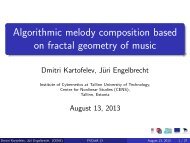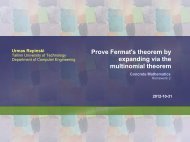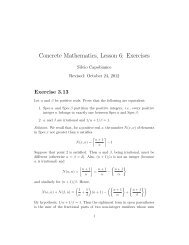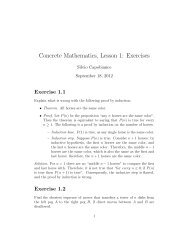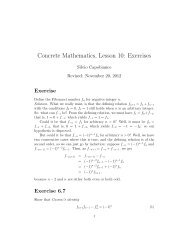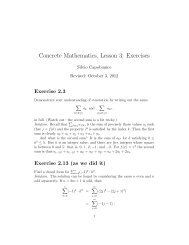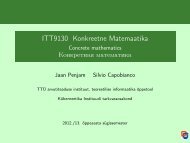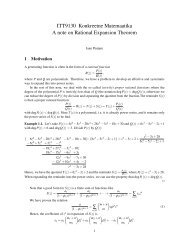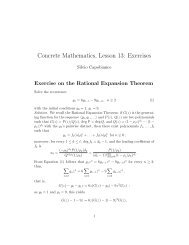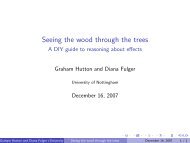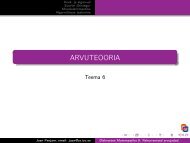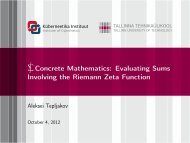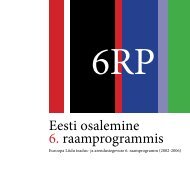Reactive Systems: Modelling, Specification and Verification - Cs.ioc.ee
Reactive Systems: Modelling, Specification and Verification - Cs.ioc.ee
Reactive Systems: Modelling, Specification and Verification - Cs.ioc.ee
Create successful ePaper yourself
Turn your PDF publications into a flip-book with our unique Google optimized e-Paper software.
146 CHAPTER 6. HML WITH RECURSION<br />
1. if q|= max Xp, then p ∼ q, <strong>and</strong><br />
2. if p ∼ q, then q|= max Xp.<br />
As the first step in the proof of Theorem 6.4, we prove the following lemma to the<br />
effect that the former statement holds.<br />
Lemma 6.1 Let Xp be defined as in (6.15). Then, for each q ∈ Proc, we have that<br />
q |= max Xp ⇒ p ∼ q .<br />
Proof: Let R = {(p, q) | q |= max Xp}. We will prove that R is a bisimulation, <strong>and</strong><br />
thus that p ∼ q whenever q|= max Xp. To this end, we have to prove the following<br />
two claims, where b is an arbitrary action in Act <strong>and</strong> p1, q1 are processes in Proc.<br />
a) (p, q) ∈ R <strong>and</strong> p b → p1 ⇒ ∃ q1. q b → q1 <strong>and</strong> (p1, q1) ∈ R.<br />
b) (p, q) ∈ R <strong>and</strong> q b → q1 ⇒ ∃ p1. p b → p1 <strong>and</strong> (p1, q1) ∈ R.<br />
We prove these two claims separately.<br />
a) Assume that (p, q) ∈ R <strong>and</strong> p b → p1. This means that<br />
From equation (6.15), it follows that<br />
q|= max<br />
<br />
a,p ′ .p a → p ′<br />
q |= max Xp <strong>and</strong> p b → p1 .<br />
〈a〉Xp ′<br />
<br />
<br />
∧ [a] <br />
a<br />
p ′ .p a → p ′<br />
Xp ′<br />
<br />
As p b → p1, we obtain, in particular, that q |= 〈b〉Xp1 max , which means that,<br />
for some q1 ∈ Proc,<br />
q b → q1 <strong>and</strong> q1|= max Xp1 .<br />
Using the definition of R, we have that<br />
which was to be shown.<br />
q b → q1 <strong>and</strong> (p1, q1) ∈ R ,<br />
.



